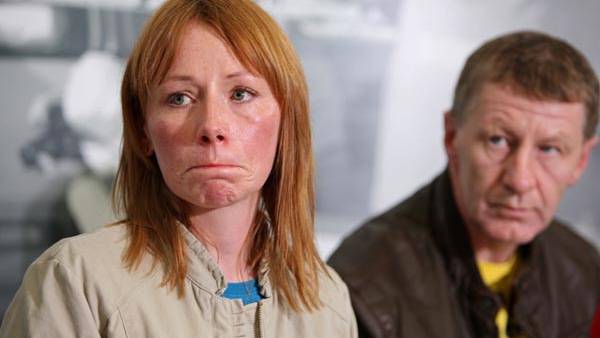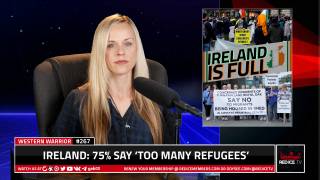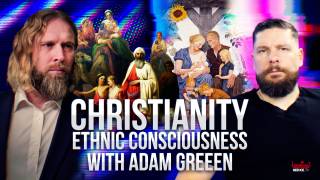Ireland: Priest’s role in deadly bombing revealed
Source: globalpost.com
Cover-up’A British Cabinet Minister and a Cardinal were certain that a Roman Catholic priest was responsible for one of the worst IRA atrocities of the Northern Ireland Troubles, but they colluded to allow him to continue his ministry preaching the Gospel.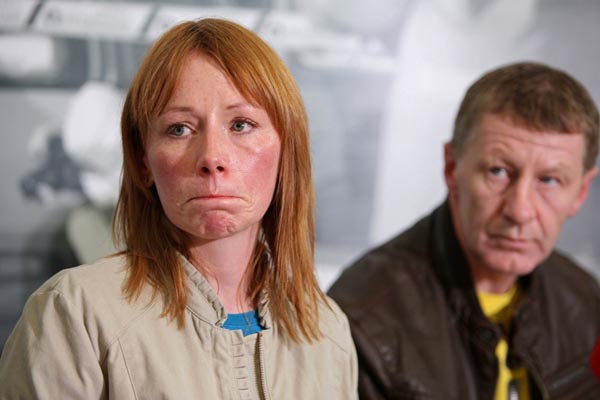
Tracy Deans (L) whose great uncle was killed in the Claudy bomb in 1972, and Mark Aiken (R), whose sister was also killed, address the media in Claudy, Northern Ireland Aug. 24. Top officials in the police, government and Catholic Church in Northern Ireland conspired to protect a priest, Father James Chesney, suspected over 1972 bombings that killed nine people, an investigation revealed Tuesday. (Peter Muhly/AFP/Getty Images)
This is the shocking conclusion of a report released Tuesday by the Northern Ireland police, and it has raised troubling questions about the role of Catholic clerics in the 1968-1998 conflict.
On July 31, 1972, three car bombs exploded in the village of Claudy near Derry. Nine people, five Catholics and four Protestants, were killed, including nine-year-old Kathryn Eakin, who was cleaning her parents’ shop window.
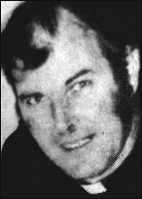 Police suspected local priest Father James Chesney, [left] of leading the IRA unit responsible, but feared sectarian bloodshed on a large scale if he was arrested and exposed. Instead, Chesney was quietly moved to a parish across the Border in the Irish Republic, where he died of cancer eight years later.
Police suspected local priest Father James Chesney, [left] of leading the IRA unit responsible, but feared sectarian bloodshed on a large scale if he was arrested and exposed. Instead, Chesney was quietly moved to a parish across the Border in the Irish Republic, where he died of cancer eight years later.Officers of the Royal Ulster Constabulary (RUC) at the time of the bombing had identified Chesney as leader of the South Derry IRA unit and wanted to arrest him, but were told by a senior commander that “matters were in hand” and to do nothing.
The extraordinary sequence of events that made the bomber-priest untouchable is spelled out in the report of the police ombudsman, Al Hutchinson.
He describes how the police commander had written to the British government to ask what could be done to “render harmless a dangerous priest.”
In response on Dec. 5, 1972, the British Secretary of State, William Whitelaw, raised the matter in secret talks with Cardinal William Conway, head of the Catholic Church in Ireland.
In the official report of the meeting, Conway said he knew the priest was “a very bad man,” and mentioned the possibility of transferring him across the border to a parish in County Donegal. The report was sent to the Chief Constable of the RUC, Graham Shillington, who initialed it and wrote, “Seen. I would have preferred Tipperary,” and closed the Chesney file. Tipperary is over 100 miles to the south of Derry.
The ombudsman’s revelations have confirmed what people in the peaceful village of Claudy always suspected.
“Father Cheney’s life was more important than the victims,” said Mary Hamilton, a unionist councilor who with her husband owns the village’s Beaufort Hotel. She told Irish radio yesterday how she vividly remembered seeing “a man dying beside me with his head blown off and his insides hanging out."
The church knew he was dangerous, she said bitterly, “but they allowed him to preach, to carry on as a priest.”
Conway’s successor, Cardinal Seán Brady, denied any Catholic Church cover-up. In a joint statement after the ombudsman’s report was published, Brady and the Bishop of Derry, Seamus Hegarty, said the actions of Cardinal Conway did not prevent the detention of the priest.
Until his death in 1980, Cheney regularly crossed the border, “but was never arrested, questioned nor further investigated by the RUC in connection with the Claudy bombings or other terrorist activity.”
Brady and Hegarty also stressed that, throughout the Troubles, the Catholic Church was constant in condemning violence.
“It is therefore shocking that a priest should be suspected of involvement in such violence. This case should have been properly investigated and resolved during Father Chesney’s lifetime.”
Adrian Eakin, brother of Kathryn Eakin, said he believed Whitelaw became part of the cover-up as he had been secretly negotiating with the IRA and did not want the priest arrested for fear that other Catholic priests would become targets for loyalist paramilitaries.
The bombing itself turned into one of the worst screw-ups by what is thought to be an incompetent IRA unit.
The ombudsman relates how the terrorists had tried to telephone a warning to the RUC from nearby Dungiven but local phones were not working - because the IRA had blown up the exchange some days before. By the time they alerted the police, two of the bombs had already exploded.
Sinn Fein, the political wing of the now-disbanded IRA, called for a truth commission to deliver closure for all families bereaved in the troubles. James Allister, leader of a minority unionist party, Traditional Ulster voice, accused the Catholic Church of being complicit “in covering up mass murder in Claudy.”
Whitelaw’s successor, Owen Paterson, for his part said the British government was “profoundly sorry” that Chesney’s role in the bombings was not properly investigated. Conway, Whitelaw and Shillington have since passed away.
The atrocity was commemorated by Irish poet James Simmons in a work entitled “Claudy,” which included the lines:
"An explosion too loud for your eardrums to bear;
and young children squealing like pigs in the square,
and all faces chalk-white and streaked with bright red,
and the glass and the dust and the terrible dead…
Meanwhile to Dungiven the killers have gone,
and they’re finding it hard to get through on the phone.”
Article from: GlobalPost.com
’Cover-up’ in Claudy bomb probe
Video from: YouTube.com
